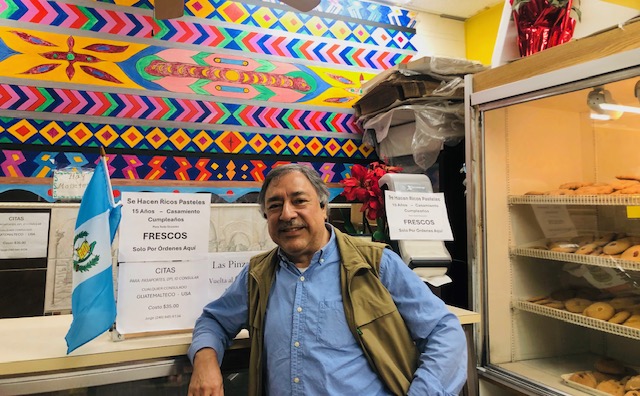The Latino community is Maryland’s fastest-growing demographic. According to Census Bureau estimates, in 2023, Latinos accounted for 11.5 percent of the state’s population.
Langley Park, once a flourishing Latino community nestled across three jurisdictions in the state of Maryland, is now visibly under siege. Road work, orange barricades and drilling equipment are scattered across University Boulevard and New Hampshire Avenue, making passage to dozens of small, Latino-owned businesses treacherous.
“They are killing us. They know it and don’t care. It is a done deal,” says 61-year-old Jorge Sactic, owner of Chapina Bakery at the La Union commercial center.
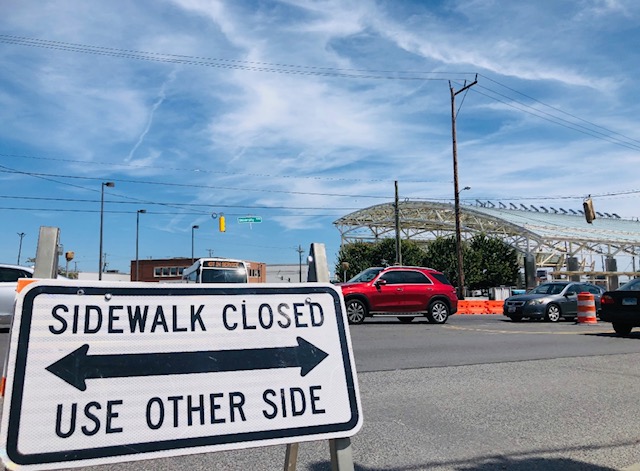
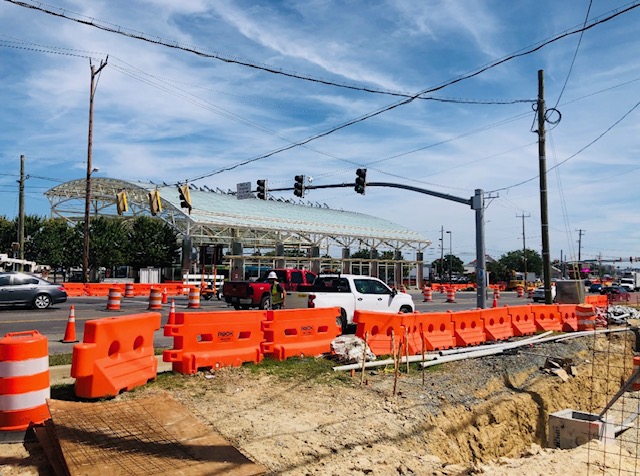
He is referring to local and state transportation authorities driving forward the Purple Line. This $2.25 billion transportation project envisions 16 miles of light rail connecting different suburban communities across the portion of the state just north of the nation’s capital. These communities include Langley Park, which has an estimated population of 21,000, and at least 85 percent of the residents are from Central America.
Meant to bring new opportunities and economic development to areas that currently lack access to rail transport, the Purple Line, according to a 2017 study conducted by the University of Maryland, may also reduce affordable housing and displace many low-income residents who have lived for generations in communities like Langley Park, known as the International Corridor because of its ethnic diversity.
This is the main issue on Sactic’s mind ahead of November’s presidential election. As a longtime community leader of Langley Park and founder of the small-business association for La Union shopkeepers, he says that daily survival is his priority and that of many of his compatriots from Guatemala and El Salvador.
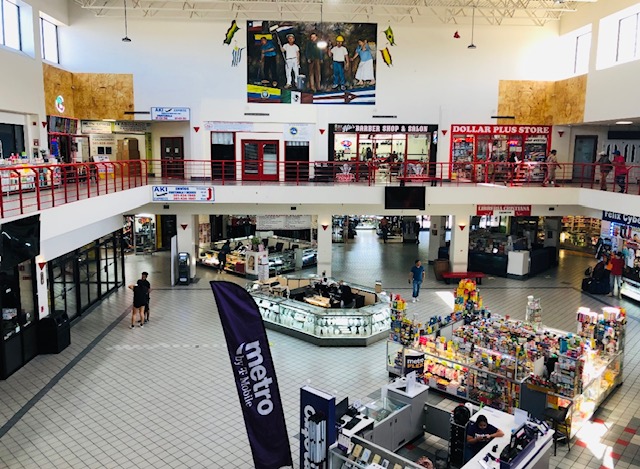
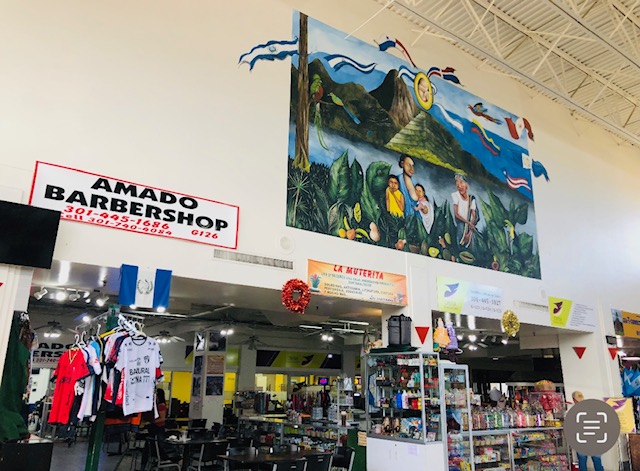
Sactic’s bakery — named for Chapín, the colloquial term for people of Guatemalan descent — is one of 46 small businesses in the two-story shopping center. Shop owners and keepers in La Union are primarily from Central America, and their commercial activities cater to their compatriots. Two giant murals depicting workers and people in traditional dresses with a backdrop of the tropics welcome visitors.
“Here, we sell memories and feelings,” explains Sactic, whose bakery offers cachitos and gallianetas, authentic Guatemalan sweet buns, among other delicious treats. “When people come to the bakery, the food they taste brings them home, and they are happy.”
At the bakery, Sactic also offers notary services to members of his community whose paperwork needs to be officialized. “Many don’t have legal documentation, which is why they can’t vote.”
Sactic knows first-hand what it is like to be without legal status. At the age of 25, when Guatemala was ripped apart by civil war, he fled his country and swam across the Rio Grande at Bronxville, Texas. Two years after becoming a U.S. citizen in 2002, Sactic opened Chapina. He has voted ever since. He does not hesitate to respond when asked about priority issues for the Latino community in the upcoming presidential election.
“First and foremost, we care about immigration. We want people who have been here for generations and have contributed to growing the economy to be legalized,” he says. Sactic, like other residents of Langley Park I spoke to, expressed concerns about new immigrants not being as hard-working as immigrants from previous generations and more likely to engage in criminal activities.
Sactic says many Latinos have lost faith in the Democratic Party.
“Older immigrants feel betrayed by this administration,” he explains. “Since Obama, they have been promising us an immigration reform so people who have been here for years can become legal. This party has lied ever since.” In fact, he adds, the largest amnesties have occurred under Republican administrations.
A national survey of Latino voters conducted by the Hispanic Federation in August indicates that 21 percent of respondents consider immigration reform for immigrants who are already in the United States to be the most important issue aside from economic concerns.
Another important topic that will motivate Latino voters this November, according to Sactic, is family. More specifically, family values: “Most Latinos are for a traditional family composition. We don’t accept a couple with a different sexual orientation. This issue matters to us and will prompt many to vote.”
However, according to a 2022 report by the Pew Research Center on how Hispanics view social issues, there is a significant difference between young and old generations of Latinos when it comes to acceptance of same-sex marriages and transgender people. Older Latinos have more conservative views on issues of sexual orientation.
The Hispanic Federation survey also found that jobs and the economy remained high on the Latino voters’ motivation list in November. “Trump wants to bring jobs back to America. For us, this means more work here and for our community,” says Sactic. “Remember, Latinos are the ones who do the dirty and heavy jobs. There are no weekends for us. We work all the time, day and night.”
The mistrust towards the party in power may also stem from local politics. Sactic said that few government officials from this historically Democratic state seem to care about the fate of the more than 18,000 Latino residents of Langley Park. “Our elected officials don’t bother to meet us. No one knows who they are. They have never come here,” he said.
Ironically, a few months ago, Guatemala’s president, Bernardo Arévalo, visited La Union to acknowledge the sizable Guatemalan community in Maryland. Sactic, also known as the unofficial mayor of Langley Park, helped organize the visit, which briefly revived the mall’s activity. Since the Purple Line construction began, shop owners have lost 50 percent of their customers and are struggling to pay rent.
But in the early evening, the side streets of this working-class neighborhood are filled with parked white commercial vans used by construction workers. Food stalls scattered across a few key intersections sell traditional Latin American food like carne asada — marinated grilled meat — arepas, pupusas, and bags of sliced mangos with lime juice and seasoning. Despite the uncertainty, life goes on.
“We have been in this community for over 30 years,” says Sactic. “We have started businesses from scratch, have created jobs, and have paid taxes. We feel betrayed at the national level and also locally.”
SUGGESTION
Why toddlers are motivating an early school educator in Florida to vote
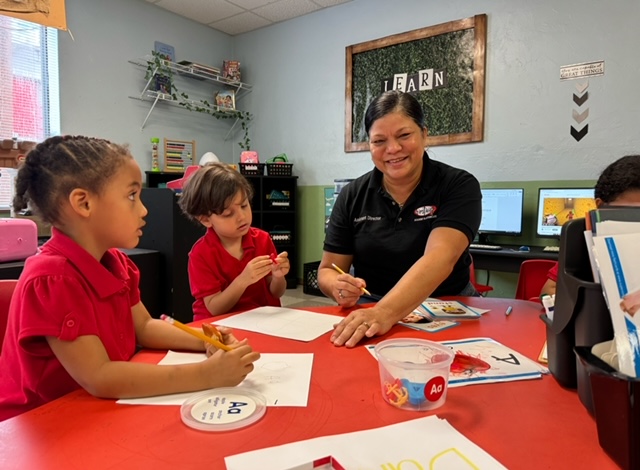
Cover Photo: “Trump wants to bring jobs back to America. For us, this means more work here and for our community,” says Joge Sactic, who owns a bakery just outside Washington, D.C.
Beatrice Spadacini is an Italian American freelance journalist who writes about social justice and public health.
Publisher’s Notes: Small-business owner prioritizes immigration in this year’s election was first published in The Fulcrum and republished with permission.
Part of LNN’s mission is to amplify the work of others in providing greater visibility and voice to Hispanic, Latino communities.
